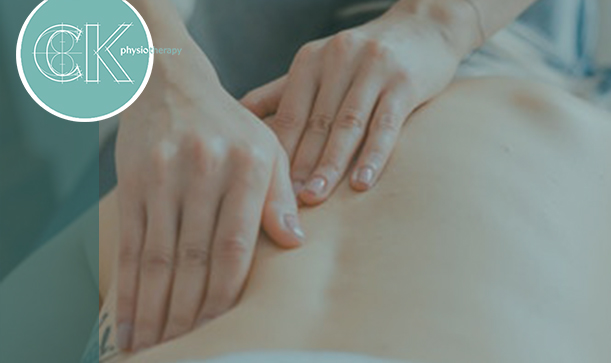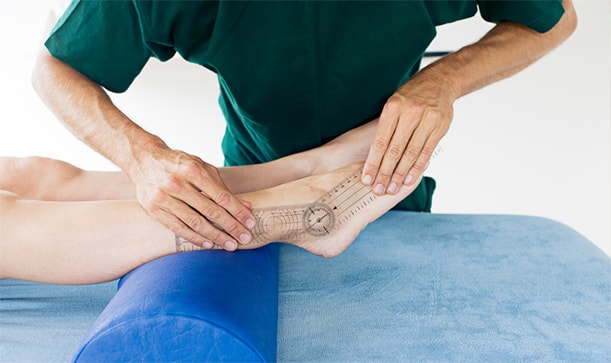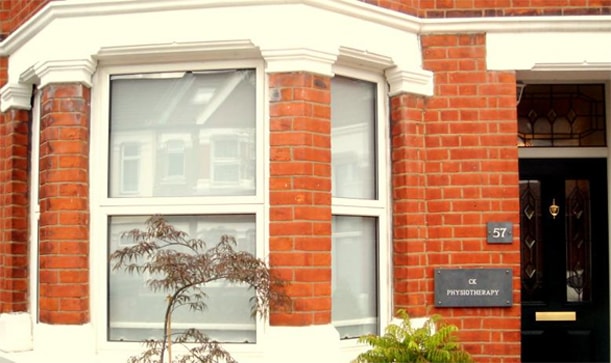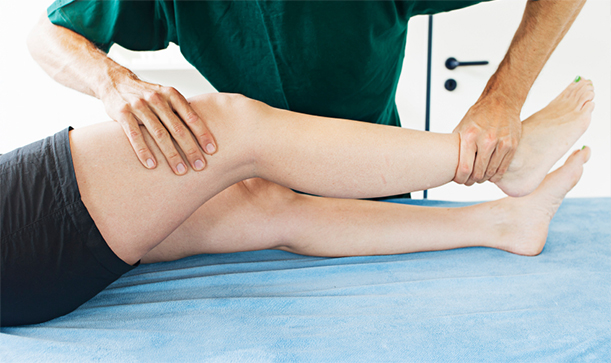CK Physiotherapy
AREAS COVERED
W7, W5, W13, Ealing, West London
57 Elthorne Avenue
Hanwell, W7 2JY
T: 020 8566 4113
M: 079 572 46185
E: info@ckphysio.co.uk
Location / Parking
We are situated in Hanwell, between Boston Manor Road and Northfields Avenue, south of the Uxbridge Road.57 Elthorne Avenue
Hanwell, W7 2JY
There are parking restrictions Mon - Fri 9-10am and 2-3pm. If you need a permit during this time please inform your therapist when you arrive. There are no parking restrictions at other times.
Opening Times
Please phone the number above during working hours to make an appointment. Our reception service will be happy to book your session.
London Underground / Bus Services
London Underground
10 min. walk from Boston Manor Tube Station.
15 min. walk from Northfields Tube Station.
Bus Service
E8, E3, E2, 207, 607, 83
Request Call Back
Our Blog
Physiotherapy for Back Pain Relief
By: BryanKelly (Psst, View author in Google Plus) Date: Feb 6th, 2019Back pain is a common and complicated problem. About 80 percent of adults will suffer with low back pain at some point in their lives, and the World Health Organization notes a UK study that indicated low back pain was the leading cause of disability in young adults.
This pain can prevent people from going to work, having sex, exercising, playing with their children, and performing other daily activities, and it's getting worse: "Globally, years lived with disability caused by low back pain increased by 54% between 1990 and 2015."
If you're experiencing back pain or if you are at risk for it, it's essential to understand what's causing it and what you can do about it.

What Causes Your Back Pain: How Physiotherapists Can Help
There are three broad categories of back pain:
• Acute: Pain lasting less than a few weeks that goes away on its own, or with proper rest and self-care.
• Subacute: Pain lasting longer than four weeks but less than 12 weeks.
• Chronic: Pain lasting longer than three months. This may be pain that continues after the original cause of the pain was treated, if such a cause was identified.
Surprisingly, very few cases of low back pain are caused by a traumatic incident like a car accident or another injury, and even fewer cases are a result of tumours or infections. Some back pain can be pinpointed due to a herniated disc, sciatica, disc degeneration, or spinal irregularities. Beyond that, many people who suffer from low back pain have a hard time identifying a specific cause.
There are a variety of factors that may contribute to low back pain:
• Ageing: Getting older increases your risk of osteoporosis and other issues that may impact the bones and muscles of your back.
• Weak or Over-Tight Muscles: Strong core muscles are essential to support the spine; a weak core may contribute to back pain. Additionally, if certain muscles are too tight (particularly if opposing muscles are especially weak), you may experience pain.
• Pregnancy or Weight Gain: As the weight distribution of your body shifts, and as more weight is added, it can put additional pressure on certain bones and joints.
• Repetitive Movements: Carrying heavy objects, bending, using poor posture, or sitting all day may cause overuse injuries or muscle imbalances that lead to back pain.
• Mental Health: Depression or even a negative attitude can influence your experience with pain.
How to Prevent and Treat Back Pain
Prevention is, of course, preferable to treatment. Take care of your back with daily exercise and stretching. Use good posture while sitting and standing, and focus on proper body mechanics when lifting, bending, and twisting. Maintain a healthy weight and stop smoking (or don't start). Wear comfortable, supportive shoes and use chairs with appropriate lumbar support.
For some time, it was common to treat back pain with medication. Indeed, pharmaceuticals may still be necessary in some of the most extreme cases, but more and more physicians are looking to alternatives. The United States has been experiencing an opioid crisis for years, and opioid overdose deaths have been on the rise in the United Kingdom and other parts of the world. In some cases, opioid use increases depression, which may make the pain worse. Speak with your doctor about the risks and benefits of strong pain medications. Your physician may recommend occasional use of an over-the-counter alternative like ibuprofen.
There are a variety of other options for treating back pain. You may benefit from one or a combination of several:
• Acupuncture: Although further research is needed, acupuncture for the treatment of low back pain is a promising option.
• Exercise: There are a variety of exercises for low back pain relief: strengthening weak muscles may eliminate your back pain altogether. Low back pain stretches for flexibility should be used in conjunction with strengthening exercises for balanced physical fitness.
• Spinal Manipulation: Adjustments and manipulation as performed by experienced chiropractors, osteopaths, and physiotherapists have been shown to help, especially in conjunction with exercises for lower back pain relief.
• Biofeedback: Since it has no side effects, biofeedback is a common addition to a treatment plan and studies have shown promising results.
• Surgery: In the case of severe damage to bones or nerves, surgery may be necessary. It should be used sparingly and approached cautiously, since surgery will not always relieve the pain and any type of surgery comes with its own set of risks.
Physiotherapy for Back Pain Relief
Physiotherapy for back pain relief is effective, safe, and non-invasive. It's part of your recovery process—not something from which you'll have to recover! Whether your back pain was caused by a sudden injury or if it's an ongoing chronic concern, physiotherapy is a holistic approach that is appropriate for people of all ages with any pain level.
Physiotherapy starts with a thorough examination to rule out any serious injury or illness, so we can approach your treatment from the right perspective. We will consider your medical history, lifestyle, and perhaps X-rays or an MRI. From there, we'll develop a personalized treatment plan for you. Every spine and every experience of pain is different, so it's essential that every person is treated as an individual with a customised plan for improvement. Our focus is on improving your strength, endurance, and flexibility while restoring your range of motion to achieve the best possible outcome for you. Your plan may include specific exercises suitable to your needs and ability, spinal manipulation, acupuncture, and more.
Most importantly, physiotherapy empowers you with the tools to encourage your body to heal, relieve your pain, and get back to your life. At CK Physiotherapy, we're not just health care providers: we're your partners in a healthy lifestyle. We teach you the exercises, posture, and body mechanics that you can continue to use on your own, allowing you to partly (and in some cases even completely) do your physiotherapy treatment for back pain at home.
If you're experiencing chronic or acute back pain, contact us. No matter how long you've lived with it, you might not have to any longer.
Other articles worth reading:
Visit a Physio Clinic to Find Fast Relief from Lower Back Pain
Physiotherapists Share the Best Lower Back Stretches for Pain Relief
More People are Suffering from Back Pain. How to Solve It?
Work With a Physiotherapy Specialist to Finally Get Rid of Back Pain
Suffer from Back Pain? Physiotherapy Is the Answer





